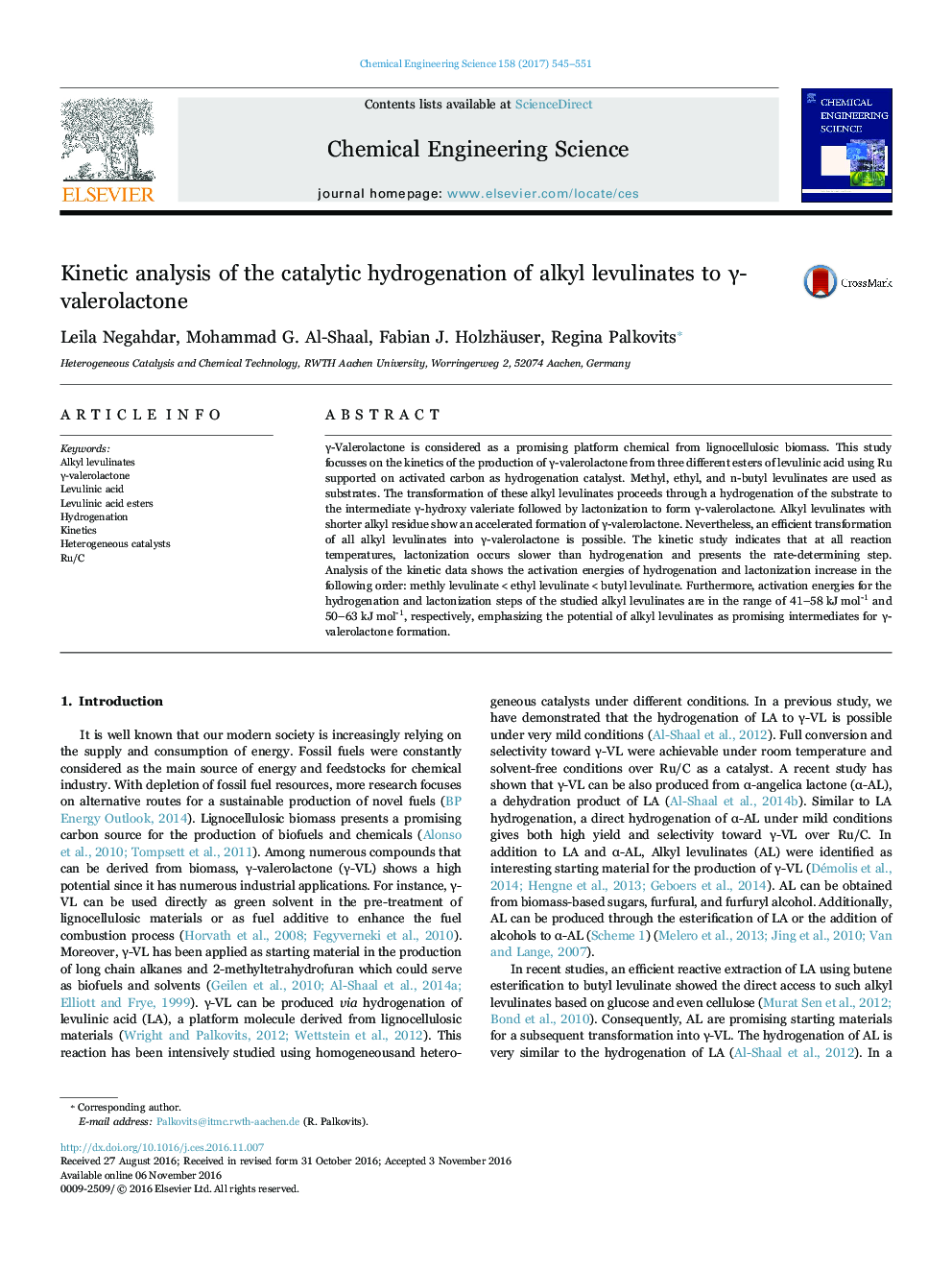| Article ID | Journal | Published Year | Pages | File Type |
|---|---|---|---|---|
| 6467927 | Chemical Engineering Science | 2017 | 7 Pages |
â¢Kinetics of the hydrogenation of alkyl levulinates to γ-valerolactone over Ru/C were investigated.â¢Î³-Valerolactone with 85% selectivity was produced from methyl levulinate after 5 h.â¢Substrates with shorter alkyl residue show higher selectivity toward γ-valerolactone.â¢Kinetic modeling indicates lactonization as the rate determining step.â¢Activation energies of hydrogenation and lactonization increaseas methyl levulinate γ-Valerolactone is considered as a promising platform chemical from lignocellulosic biomass. This study focusses on the kinetics of the production of γ-valerolactone from three different esters of levulinic acid using Ru supported on activated carbon as hydrogenation catalyst. Methyl, ethyl, and n-butyl levulinates are used as substrates. The transformation of these alkyl levulinates proceeds through a hydrogenation of the substrate to the intermediate γ-hydroxy valeriate followed by lactonization to form γ-valerolactone. Alkyl levulinates with shorter alkyl residue show an accelerated formation of γ-valerolactone. Nevertheless, an efficient transformation of all alkyl levulinates into γ-valerolactone is possible. The kinetic study indicates that at all reaction temperatures, lactonization occurs slower than hydrogenation and presents the rate-determining step. Analysis of the kinetic data shows the activation energies of hydrogenation and lactonization increase in the following order: methly levulinate Graphical abstractDownload high-res image (240KB)Download full-size image
